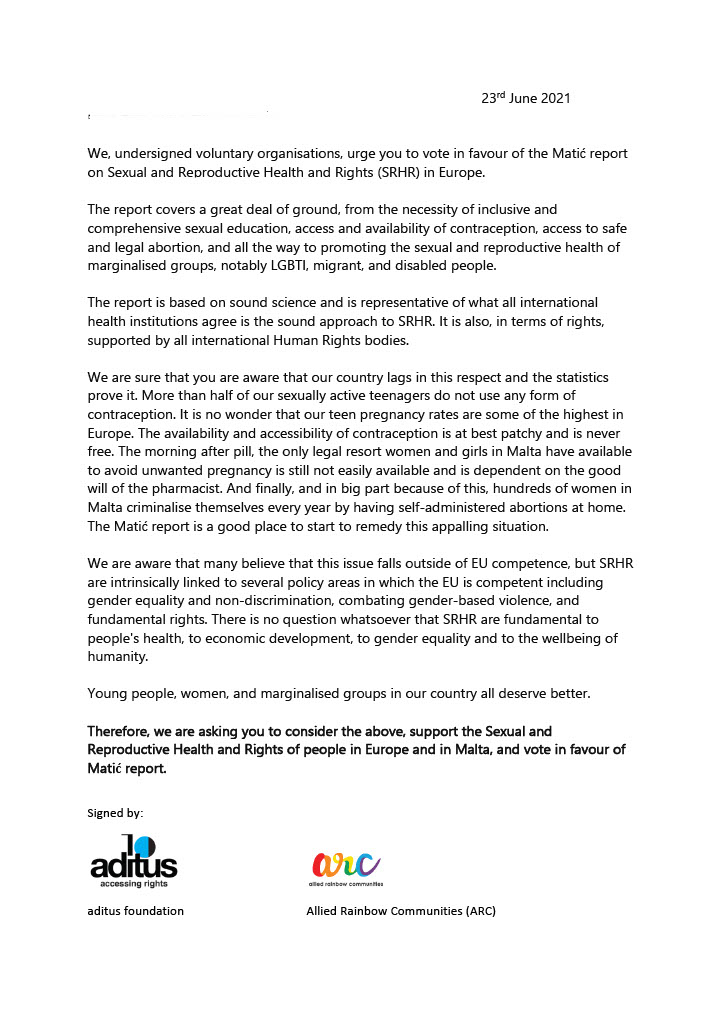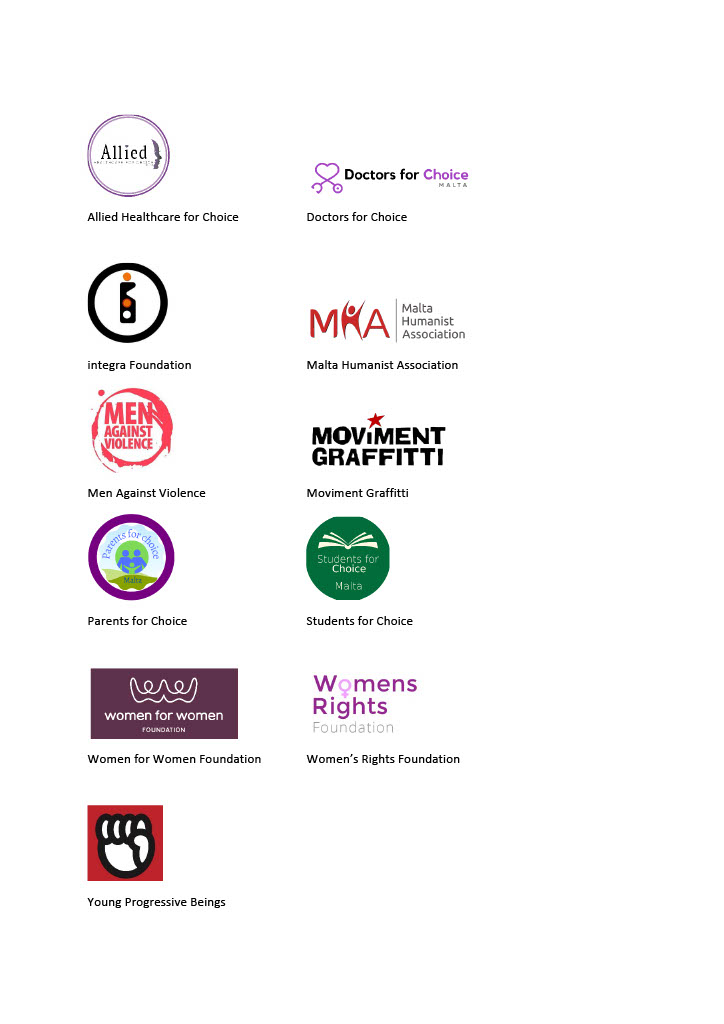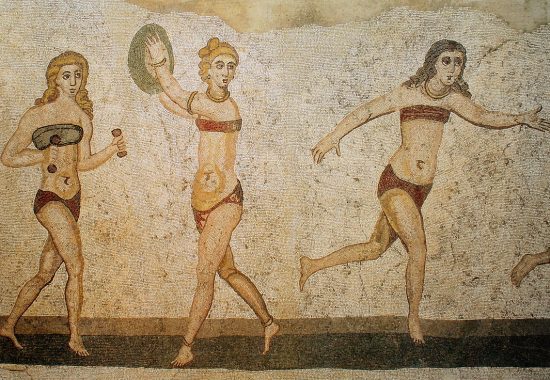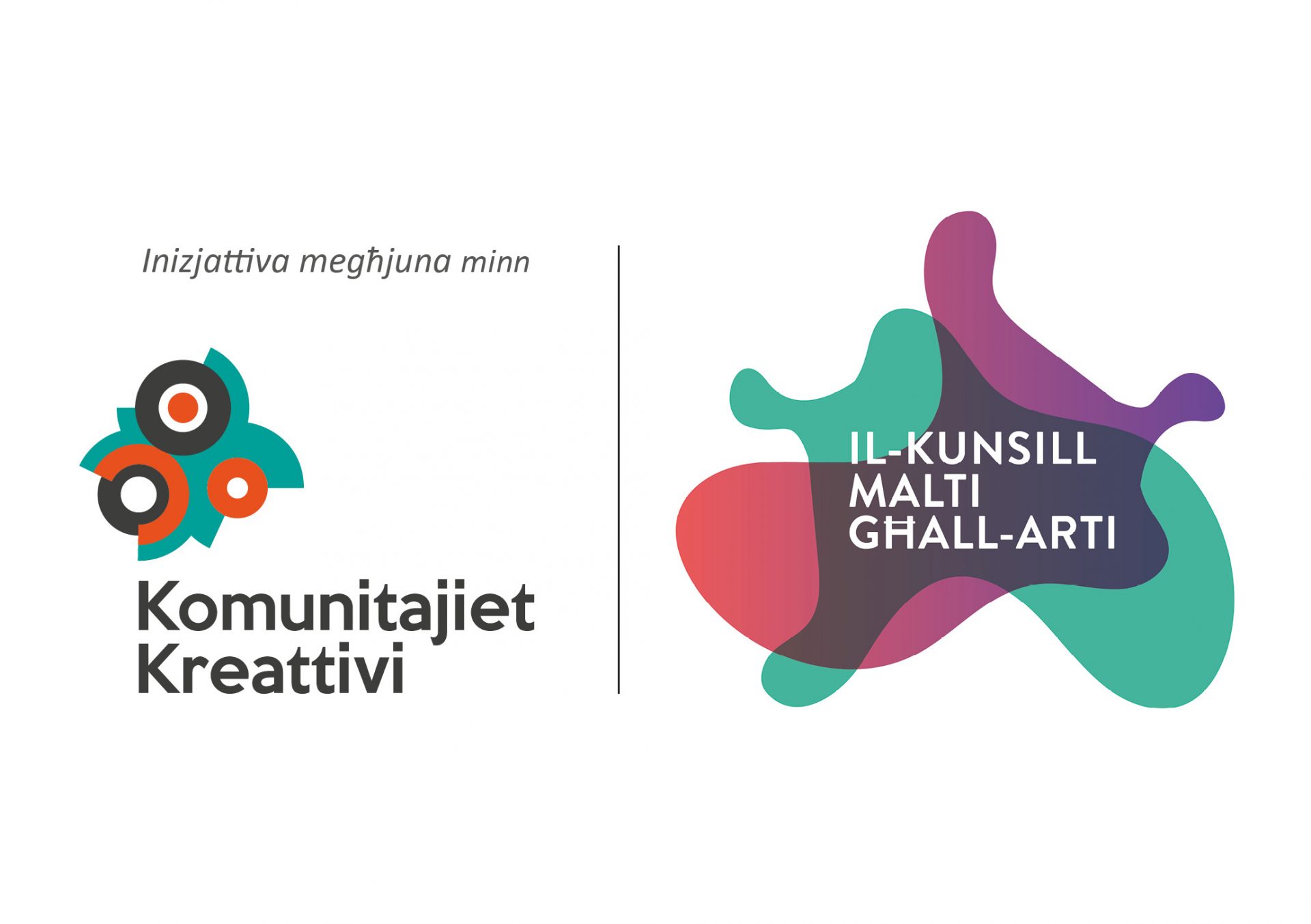aditus foundation is extremely happy to see Malta adopting marriage equality legislation. It is our firm belief that all persons should be entitled to access and enjoy the right to marry and found a family, irrespectively of their sexual orientation, gender identity or other innate characteristic.
When advocating for the adoption of the Civil Unions Act, we had unequivocally stated that whilst the legal recognition of same-sex couples established through civil unions was a historical moment for Malta’s human rights progress, falling on step short of introducing marriage equality was indeed a pity.
The Bill is essentially a law of language, to the extent that what is being said is far less important than how it is being said. By introducing a series of amendments to various legal instruments, the Bill seeks to render marriage – its processes but also its ensuing rights and obligations – as gender neutral as possible in the way it is described at law and, importantly, at the political and social levels.
Although understandably challenging for some sectors, this shift in perspective by no means diminishes the personal, social and national value of marriage but rather strengthens its possibility of being conceived of and approached in as most an inclusive and welcoming approach as possible.
Yet it is ambitious and incorrect to define the Bill as an instrument that will allow all consenting adults to enjoy the right to marry, and a number of concerns ought to be flagged.
Whereas the Bill focuses almost exclusively on broadening marriage for it to include same-sex couples, it maintains the discriminatory and degrading status quo whereby persons in an irregular migration status are denied access to marriage, due to their impossibility of producing the required documentation.
The relevant authorities have done very little to seek alternative options with a view to resolving these difficulties, thereby continuing to deny marriage to an already marginalised population.
The Bill also ignores the challenges faced by refugees and migrants who remain bound by the civil status declarations they make before the Office of the Refugee Commissioner, usually within days of their arrival in Malta.
There is a need for the Government to appreciate the state of mind, thought process and personal circumstances of a person landing Malta – in many cases following a gruelling journey by boat – and declaring the status of single or married, before taking that statement as eternally binding.
Furthermore, the Bill also maintains the privileged position enjoyed by the Catholic marriages, whereby these are – if validly contracted – recognised by the State, and have the same civil effects as a marriage celebrated under the Marriage Act.
In an increasingly diverse Maltese society, where religious freedom and non-discrimination are Constitutionally protected, there is no reason why a revised Marriage Act should continue to exclude such recognition to marriages validly celebrated according to the rites of other religions and denominations.
aditus foundation also feels that the Bill needs to incorporate or trigger further amendments to truly ensure gender equality in marriage, beyond the linguistic changes proposed in the Bill.
Examples of existing practices that act against the role of women in marriage, and therefore in society, include presumptions made (in practice, now in law) for the purposes of inland revenue and social security, as well as the impossibility of new fathers to spend quality time with their children.
aditus foundation therefore welcomes the Bill and is looking forward to appreciating its dramatic impact on the LGBTIQ+ community.
We however strongly urge the Ministry to revise the Bill in order for it to truly fulfil its stated purpose: “to modernise the institution of marriage and ensure that all consenting, adult couples have the legal right to enter into marriage.”
This press release is accompanied by our detailed commentary on the Bill.





